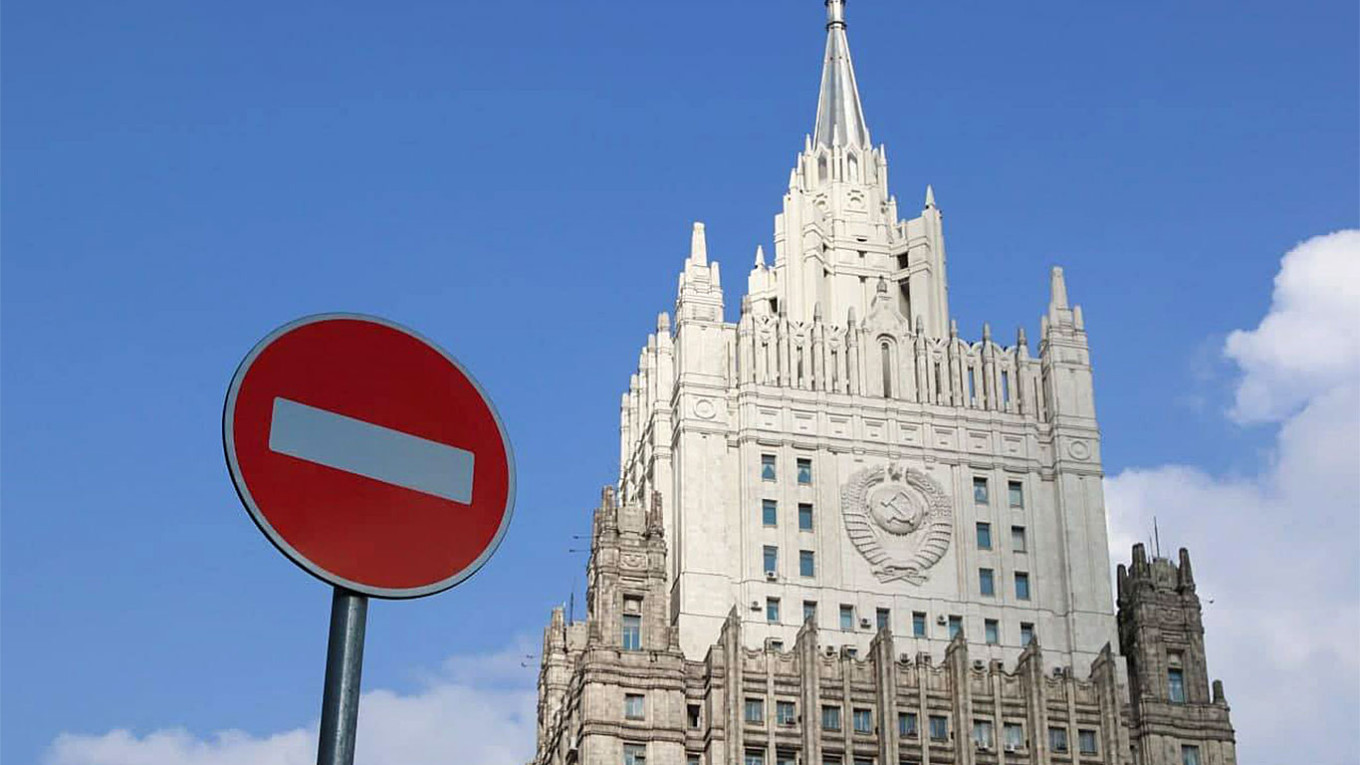Russian Foreign Ministry on Thursday imposed sanctions on more than 200 US officials and public figures, in what it said was a tit-for-tat response for similar actions against Russians in the wake of the war in Ukraine.
The sanctions include individuals allegedly involved in "anti-Russian actions" and the promotion of a "Russophobic" agenda, according to a statement on the Ministry's website.
The statement from the Ministry cited the need for retaliatory measures in response to the "constantly expanding sanctions imposed en masse" by American authorities against Russian citizens.
The list of sanctioned individuals, which currently numbers 2,078 people, includes representatives of the US executive branch of government, business community, the media and academic circles, including Voice of America special correspondent Jeff Seldin.
"In addition to declaring a number of American humanitarian NGOs used by the US Embassy in Moscow to recruit "agents of influence" as undesirable in the Russian Federation, the current expansion of the Russian stop list aims, in particular, to reinforce Washington’s reflexive awareness of the simple truth that any aggressive attempts will not go unpunished and will receive a decisive rebuff," the Ministry said.
Among those targeted are prominent figures such as US State Department Spokesman Matthew Miller, former US Ambassador to Russia John Sullivan, former US First Deputy Secretary of State Wendy Sherman, FBI special agents Neil Somers and Aaron Steketee and a number of other senior representatives of US agencies and departments.
Michael C. Kimmage, a history professor at the Catholic University of America, whose name appeared on the list, expressed disappointment rather than seeing it as an honor. He emphasized the importance of maintaining opportunities for dialogue between Russian and American experts, suggesting that constructive engagement is preferable to erecting barriers.
“I look forward to a time when Russian and American foreign policy experts can openly and honestly discuss issues of mutual interest – in Russia, in the United States or elsewhere. This time is likely to come, albeit in the distant future, but one day it will come,” Kimmage said.
The sanctions came at a time when Moscow's relations with the European Union and the United States deteriorated to their lowest level since the end of the Cold War. Since Russia launched what it calls a “special military operation” in Ukraine in February 2022, Western nations have tightened the screws on Moscow through severe sanctions that have crippled the country’s economy and penalized its government officials and their family members.
Among the many coordinated allied actions, Western powers have targeted several large financial institutions, Russian sovereign debt and wealthy individuals from Russia to limit Moscow’s ability to pay for the war. Sanctions on Russia’s foreign debt envisage that the country can no longer raise money for its state financing from Western financial institutions.
Western countries have also agreed to exclude Russian banks, which fell under sanctions, from an international payment system known as SWIFT and used by thousands of financial institutions worldwide. The existing sanctions have blocked Russia from importing key technologies, including those for defence, energy, telecoms, and aviation sectors.







 President Ilham Aliyev shed light on the evolving contours of the peace process with Armenia during an international conference in Baku this week. ...
President Ilham Aliyev shed light on the evolving contours of the peace process with Armenia during an international conference in Baku this week. ...
 Azerbaijan and Armenia started the process of demarcation of their border on Tuesday, with the installation of the first border markers based on ge...
Azerbaijan and Armenia started the process of demarcation of their border on Tuesday, with the installation of the first border markers based on ge...
 Armenian sappers commenced on Monday mine-clearance operations in the territories adjacent to the Saint Mary Church in village of Voskepar (Armenia...
Armenian sappers commenced on Monday mine-clearance operations in the territories adjacent to the Saint Mary Church in village of Voskepar (Armenia...
 Iran and Pakistan have signed eight cooperation documents in various fields, and agreed to strengthen ties to fight terrorism in the region.
Iran and Pakistan have signed eight cooperation documents in various fields, and agreed to strengthen ties to fight terrorism in the region.



